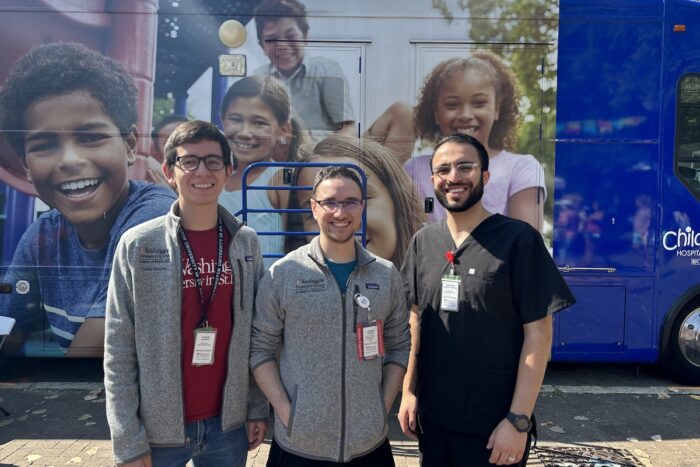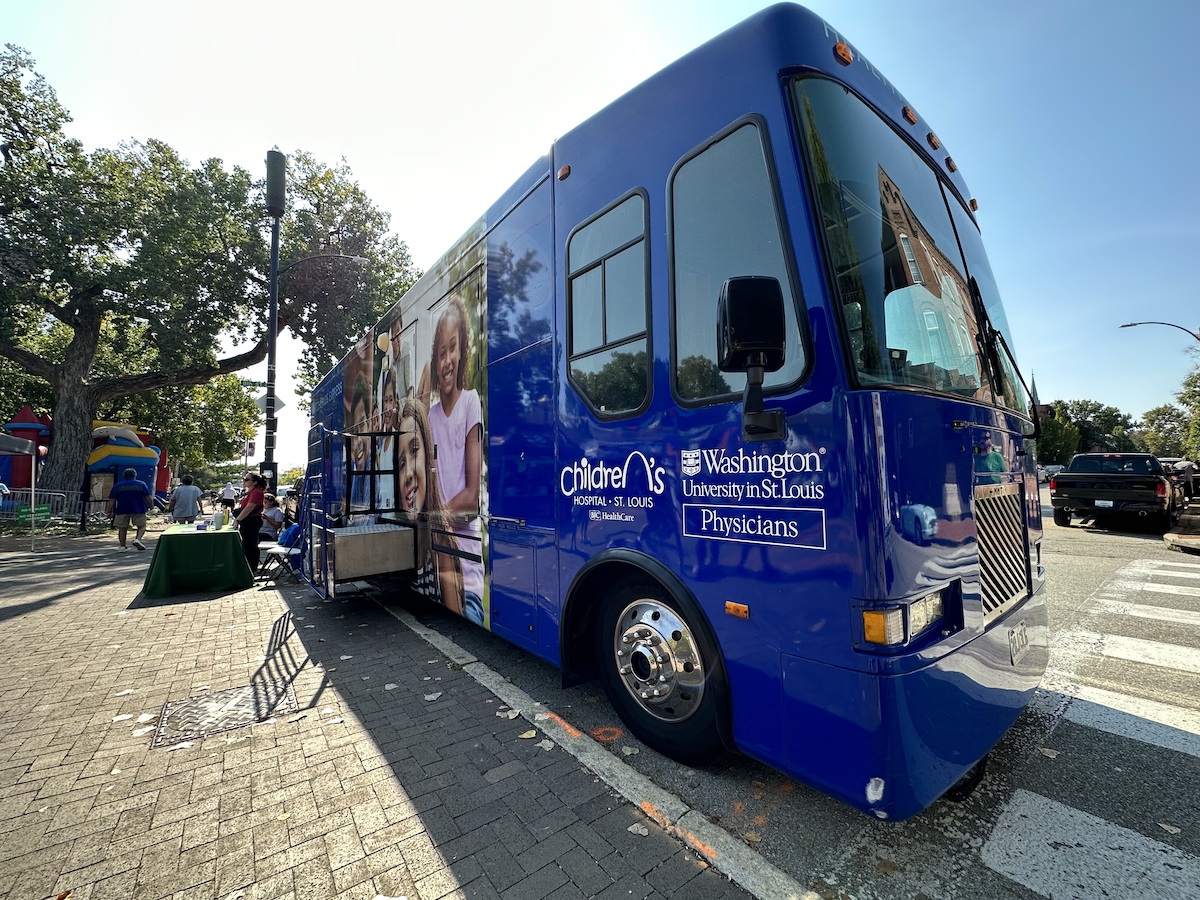Medical student-led community screenings help address health inequities
Medical student participation threaded into new curriculum
 Katie Gertler
Katie GertlerDispensing health-care advice and offering information about community resources at the Greater St. Louis Hispanic Festival were (from left) Tucker Hansen, Joshua McPhie, and Santiago Blanco Torres, medical students at Washington University School of Medicine in St. Louis.
Many patients wanted to talk about body mass index (BMI): What foods should I eat to reduce my BMI? What else can I do?
Others wanted help finding a Spanish-speaking primary care provider in St. Louis. Or a doctor who speaks Spanish and accepts patients without health insurance.
Dispensing health-care advice and offering information about community resources at the Greater St. Louis Hispanic Festival in September was Joshua McPhie, a fourth-year medical student at Washington University School of Medicine in St. Louis. McPhie, along with 10 other Spanish-speaking medical students, screened patients in the Healthy Kid Express van, a mobile health-care clinic used by Washington University Physicians and operated by St. Louis Children’s Hospital.
The students — many part of the Latino Medical Student Association — screened more than 80 adults and children during the weekend-long festival.
For many such patients, community health screenings serve as the initial access point to broader health-care systems.
“I am incredibly proud of our students, who all worked so hard and learned a great deal,” said Katherine Rivera-Spoljaric, MD, a professor of pediatrics and a faculty representative for diversity, equity and inclusion efforts. “Our students were honored to listen to the patients, in their own words, about what the community valued and needed.”
Under faculty supervision, the students conducted free blood pressure checks, glucose readings and BMI tests, the latter of which can indicate obesity. Being severely overweight can be associated with heart disease, stroke, Type 2 diabetes, gallbladder disease, joint and body pain, among other conditions.
More than a dozen patients were identified with hypertension, or high blood pressure, which can lead to heart attacks, strokes, aneurysms, kidney damage and memory problems.
They also identified patients with hyperglycemia, or high blood sugar, a sign of diabetes. Left untreated, diabetes can cause complications such as kidney dysfunction, nerve damage and eye disease.
At-risk patients were provided referrals to clinics and physicians, as well as educational brochures in Spanish or English.
Frequently, however, talking with medical school students and faculty seemed most appreciated and effective, said McPhie, who recalled informing a patient that his blood sugar was on the high end of normal.
“I knew it was time for me to cut back on the sweets,” the patient told him. “This is just the motivation I need to take that next step.”
Historically, medical students have had to volunteer for community outreach projects — work that was in addition to their heavy load of academic responsibilities. Some never volunteered because they couldn’t find the time.
That changed in 2020 with the launch of the Gateway Curriculum, the first re-envisioning of the school’s educational program in more than two decades. First- and second-year students can now receive credit for participating in community health screenings, as part of the curriculum’s commitment to health equity and justice.
Another curriculum upgrade allows students to complete clinical rotations in local health-care centers that predominantly serve non-English-speaking patients.
“A major pillar of the Gateway Curriculum is caring for under-resourced populations of St Louis and understanding contributors to inequities in health that they may face,” said Eva Aagaard, MD, vice chancellor for medical education, senior associate dean for education, and the Carol B. and Jerome T. Loeb Professor of Medical Education. “It is important and necessary for our students to be out in the community talking and listening to the people they serve.”
At the Hispanic festival, students certified in medical Spanish proudly wore official WashU bilingual-provider badges while working in the mobile clinic.
“Weaving medical Spanish into the Gateway Curriculum shows WashU’s dedication to serving diverse populations of patients by helping students grow into providers who see and know the community they serve,” McPhie said. “We learn about the community’s needs by directly listening to the people who live there.”
 Katie Gertler
Katie Gertler






